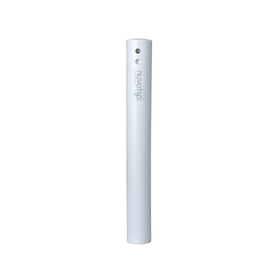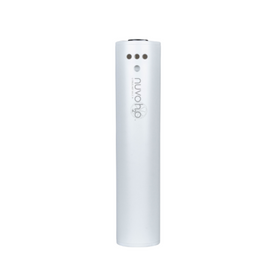
Choosing the Best Water Filter for Your Home
Last Updated: Feb 23, 2025Water is the ultimate life source, providing you and your family clean, purifying water for drinking, cooking, bathing, and more. But is that seemingly clear liquid running from your taps really as clean as you think?
Toxins find their way into clean water through old pipes, agricultural drainage, sewers, chemicals, and pesticides, contaminating both municipal and well water without warning. And because water is such a big part of our everyday lives, those who indulge in contaminated water for extended periods of time may be putting themselves at risk of gastrointestinal discomfort, including cramping and nausea or, even worse, cancer and death.
Before you rush out to buy a water filtration system, you should first identify the toxins present in your household water. Your local municipality can share local water reports with you. Or search local water reports through the Environmental Working Group’s online Tap Water Database. View Tap Water Toxins By Zipcode >>
Table of Contents
- What Types of Water Filters Exist?
- What Are the Basic Types of Water Filtration Systems?
- What Are Countertop Water Filters?
- How Do Countertop Water Filters Work?
- How Do Faucet Mount Water Filters Work?
- How Do Under Sink Water Filters Work?
- How Do Reverse Osmosis Water Filters Work?
- How Do Whole-Home Water Filters Work?
- Filter for Clean, Toxin-Free Water
What Types of Water Filters Exist?
There are many types of technologies applied to water filters of all shapes and sizes, so it’s best to know exactly which toxins you wish to filter out before settling on a solution. Below are just a few technologies available to reduce and remove toxins in your household tap water.
- Water Softener: water softeners use ion exchange technology to reduce levels of calcium and magnesium in your tap water.
- Mechanical Filters: like reverse osmosis filters, mechanical filters remove cysts and sediments from water but require additional filter integrations to remove toxic chemicals.
- Carbon Filters: carbon filters are the most popular solution for their ability to remove chlorine, volatile organic chemicals (VOCs), benzene, and radon.
- Manganese Iron Reduction Filters: you can add these types of filters to a carbon filter to reduce iron, manganese, and hydrogen sulfide from the water.

What Are the Basic Types of Water Filtration Systems?
Water filtration systems fall into three basic categories: Countertop, under the sink, and the whole house. Countertop systems are the cheapest and easiest solution for those of you who are still testing the waters and learning about water filtration, while whole-house systems ensure clean water from every tap.
Read on as we discuss the three styles of water filtration options available.
What Are Countertop Water Filters?
Countertop water filters include pitchers, dispensers, and faucet mounts and are by far the cheapest starter water filter and are an excellent choice for small households and renters. They require little to no installation and can filter a wide range of toxins including, but not limited to: chlorine, lead, copper, cadmium, mercury, zinc, benzene, and radon.

How Do Countertop Water Filters Work?
Water pitchers and dispensers, like the popular Brita and Pur pitchers, can be purchased from most big box stores and online for as little as $25. These water filters require regular filling and are best for households whose primary concern is toxins in drinking water. Pitcher-style water filters generally use carbon filter technology and gravity to pull tap water through the filter and into the bottom of the pitcher for pouring. Filters last about three months and are extremely easy to replace. These gravity water filters take some time to purify water and require refrigerator space to keep cold, and at a price point of $25 and up, they are an excellent solution for singles, couples, and small households.

How Do Faucet Mount Water Filters Work?
For those of you who’d rather your clean water flow freely for quicker access to toxin-free water for cooking and drinking, a faucet mount water filter might be right for you. These water filters attach to your existing faucet and pull toxins from the water as it passes from the tap, through the filter, and into your waiting cup. Faucet mount filters filter water much quicker than a gravity filter using the same carbon technology and can be switched on and off without removing.
Faucet mount water filters can be self-installed, making them an excellent choice for renters. Be sure to check filter compatibility with your home faucet to ensure a proper fit!
How Do Under Sink Water Filters Work?
Under sink water filtration systems offer the widest variety of filtration options, allowing homeowners to filter for specific toxins found in their local water report. Just like they sound, these more advanced water purification systems filter tap water through a hidden device under the kitchen sink. Local water pushes through the system, cleaning it, and then dispenses through a smaller, separate water faucet installed in the sink.
Most under sink water purifiers use a carbon block filter with options to add additional filters for sediment, minerals, specific toxins, and water softening. These systems are the best for reducing targeted toxins found in your water and won’t affect household water pressure. They do, however, require professional installation and start at $100.
How Do Reverse Osmosis Water Filters Work?
Reverse osmosis systems are the only water filtration system certified by the National Sanitation Foundation (NSF) to reduce fluoride, nitrate, lead, and copper in water.
Reverse osmosis water purification has gained popularity due to its ability to block toxins other filters can’t. Increasing fluoride in water decreases tooth decay and cavities while reducing nitrate, lead, and copper; all lead to significant health improvements, primarily in women and children. Reverse osmosis water filters have been known to use a lot of water and start at $125.

How Do Whole-Home Water Filters Work?
Countertop and under sink water filtration systems are great, but they have limited effect. Whole-home water filtration systems systematically purify all water coming into your house through every faucet, including bathrooms and appliances like your washing machine. These systems are incredibly beneficial for homes with hard water or large numbers of toxins present.
A whole-home water filtration system requires professional installation. Homes that use municipal water will have their filter installed near the water meter, while homes on a well will install the filter near the water storage tank.
Whole-home water purification systems may use mechanical straining for sediment, carbon, and UV microbiological technology to remove chemicals and water softening filtration. When choosing your filter, be sure to match filters to your water toxin report.
Choose a whole home water filtration system with a flow rate and filter size adequate for your household size and appliance recommendations. Whole house filters start at $600, increasing in price for larger homes with greater filtration demands.
Filter for Clean, Toxin-Free Water
Toxins can enter your water from anywhere, but you have the power to control the toxins that enter your home. Start by analyzing the toxins present in your local supply using local water reports. Once you have identified the toxins you’d like to filter for, choose a water filter that both filters those toxins and fits your household needs.
Laura Bourland
Laura grew up in the California suburbs, far removed from environmentalism, but nature always has a way. She uprooted her life in 2015, moving to the countryside of Washington to live a more sustainable and simple life on 12 acres. She and her fiancee are learning on the job as they attempt everything from gardening and natural pest control to eco-friendly building and home improvement.












